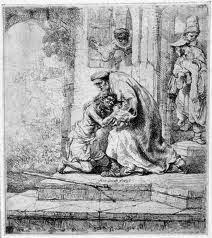
The year turns, and some things remain wearisomely predictable. These include the certainty that a solid percentage of white Catholics in the U.S. (a good portion of the some 60% who now almost unvaryingly always pull the GOP lever in voting booths, I suspect) will do everything in their power to try to derail intra-Catholic discussions of white privilege and racism, whenever these topics are discussed at Catholic blog sites.
Have a look at the responses to Mary Ann McGivern's proposal two days ago at NCR that white American Catholics examine their white privilege. The wearisomely predictable responses range from, "What white privilege?", to, "Blacks need to get their act together," to, "I stand on the side of law and order," to, "But my white Catholic ethnic ancestors struggled, too, and hard work and good morals got us out of our mess, while blacks . . . ."
The U.S. Catholic bishops issued their pastoral letter Brothers and Sisters to Us in 1979, over three decades ago, and a stolid core of white Catholics in the U.S., the same politically significant voting bloc that predictably votes Republican in recent elections, refuses in any shape, form, or fashion to entertain the thesis of that pastoral document that racism operates in our society today primarily via mechanisms of economic marginalization that keep racial minority groups in intergenerational prisons of poverty from which it's well-nigh impossible to escape without a helping hand from the rest of us.
That was three decades ago, and look at how this particular white Catholic commentator deals with the valuable comments of another commentator (Alexandra, who often leaves insightful comments here, too) calling on her to try to understand the manifold privileges she enjoys (and takes for granted) simply because of her pigmentation — privileges that would not be there for her if her complexion were dark. Janis's response to Alexandra: What white privilege?
And: I had working-class grandfathers who struggled to make ends meet. And women struggle. How is the struggle of my working-class grandfathers or of women in general any different from the struggle facing members of the black community?
It's their fault. We made it (click on Janis's Disqus username, and you'll discover postings noting that she's a successful business owner, not to mention a ranting and raving tea partier who thinks President Obama is guilty of every excess in the canon), and they can make it, too.
If they'll only buckle up, behave decently, work hard, stop with the crime already:
All these years I’ve been slaving for you and never disobeyed your orders. Yet you never gave me even a young goat so I could celebrate with my friends.
And now that my prodigal brother has come home, you expect me to celebrate? After he's wasted everything and reveled in immorality, while I've worked my fingers to the bone? Not going to happen. This is now how the moral universe works!
We American Catholics seem to have learned very little from American history and its endemic racism. Like Janis, we're not willing to learn. We don't intend to see.
It's their fault.
Is it any wonder that Peter McDonough's new book The Catholic Labyrinth: Power, Apathy, and a Passion for Reform in the American Church finds little hope in the American Catholic community qua institution, which remains intractably conservative and as complacent as the elder brother in the gospel story, for movements to fuel progressive political change? We can't change things, because we haven't been challenged by our pastoral leaders, by our U.S. Catholic bishops, to see — to see the need for change, for fundamental transformational reform of our economic and political systems.
Because we can't see, we don't intend to learn — above all, from the experience of the many Americans who are different from ourselves, different from us in our tribal enclaves. Whose history differs from our history . . . . Whose way of being in the world differs from our way of being in the world, as a result of different historical experiences . . . .
Joan Walsh has done a great deal for a long time now to illuminate for the rest of us the complex interaction between white ethnic working-class Catholics in the northern part of the U.S. and movements for progressive change (and resistance to such movements) in the latter half of 20th-century America. What I think Walsh hasn't yet analyzed clearly enough, however, is why the three faces at the top of her recent article about white backlash in the current standoff between New York mayor De Blasio and the NYPD are Irish Catholic faces.
The faces of her people, and of some of my own people. Faces I'm embarrassed to keep seeing at the head of articles like this. But faces I know full well I'll continue to see topping such articles as 2014 turns to 2015.
As predictably as I'll hear many of my fellow Catholics continuing to echo the older brother in the gospel story, anytime issues of race and white privilege are brought before us as a Catholic community.
Rembrandt's 1636 etching of the parable of the prodigal son captures the bafflement — and displeasure — of the older brother and others at the father's willingness to welcome his lost son back.

